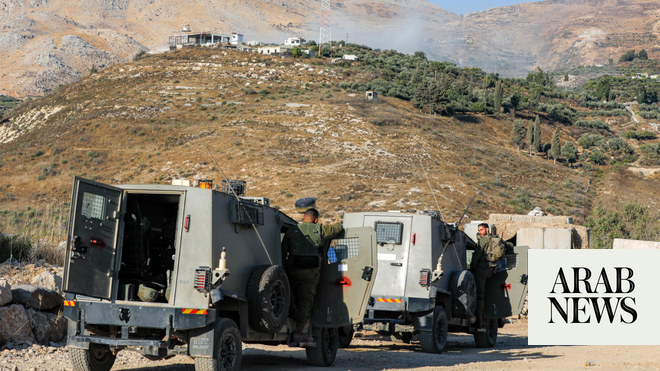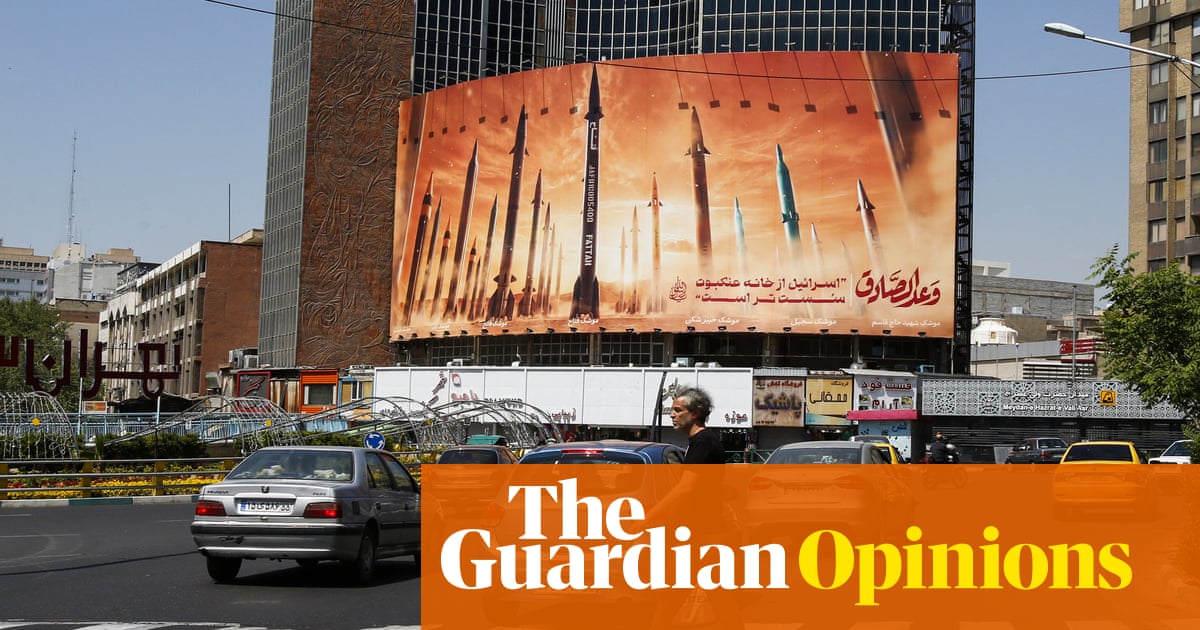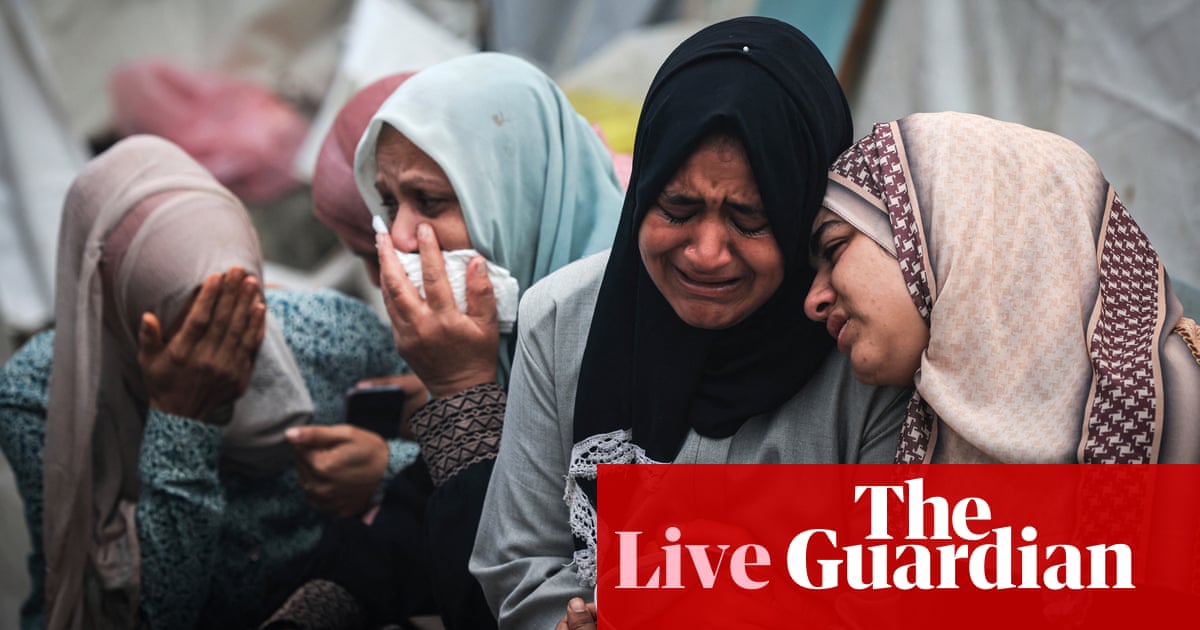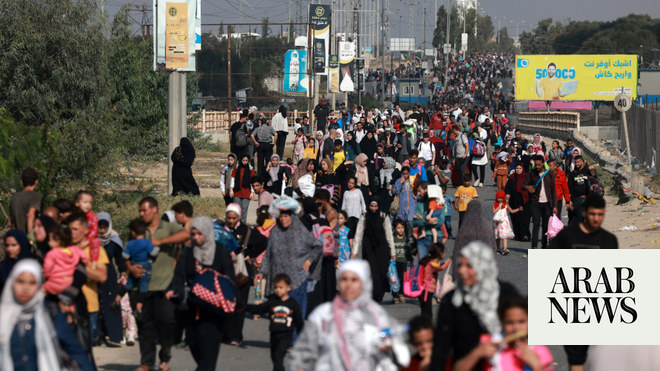
Dependent on Tehran and Hezbollah, Syria’s Assad government may have little choice but to side with Hamas
Syrians say their “hearts are with Gaza,” but a decade of war and sanctions has left them too exhausted to fight
LONDON: Syrians are growing increasingly concerned that repeated Israeli airstrikes and incursions could drag the country into the intensifying Israel-Hamas war, extending Syria’s decade-long existence as a proxy battleground.
In the three weeks since Hamas’ deadly assault on sites across the Israeli border of the Gaza Strip, Israel has launched attacks against Syria’s civilian airports in Aleppo and Damascus, including a simultaneous strike on Oct. 12.
Nearly two weeks later, the Israeli Defense Forces killed eight soldiers during a raid in southern Syria, allegedly in response to rocket fire launched from Syrian territory the previous day.
On Monday, Israeli fighter jets again struck what Tel Aviv regarded as sites of rocket launchers in Syria, and Hezbollah targets in Lebanon, apparently in response to earlier such attacks into Israeli territory.
“Since the 2006 Lebanon war, we have anticipated a direct confrontation with Israel or a full-blown US-Iran war on Syrian soil,” said Diana, 37, a UAE-based accountant whose name has been changed to maintain her anonymity. Having left the country in 2022 after losing hope of an economic recovery, she told Arab News that she feared “any war at this point might wipe my country off the map.”
The uptick in IDF-led strikes builds on a history of hostilities since the eruption of Syria’s civil war in 2011. Israel has not been hesitant in launching hundreds of air raids in the Syrian north, often claiming that its targets were Iranian-backed forces and Hezbollah. The argument is that Tehran, as one of Syria President Bashar Assad’s strongest allies, has deployed both its Islamic Revolutionary Guards Corps and proxy forces to different parts of Syria, including near the Israeli-annexed Golan Heights.
Further to this, various actors including the US, Russia and Turkiye, as well as foreign and regional militias and terrorist groups, have waged battles on Syrian land. Together with tight economic sanctions, the impact has devastated the country’s infrastructure, economy and citizens. In 2021, World Vision estimated that the economic toll of Syria’s war exceeded $1.2 trillion and, assuming the war ended that year, the burden was projected to increase until 2035 by an additional $1.7 trillion at current rates.
Echoing Diana’s concerns is 48-year-old mother of two, Yara, whose name has also been changed. After leaving Syria in 2019 to start a new life in the UK, Yara thought the Syrian war was beginning to fade into the past, but recent developments in Gaza have made her “worry that the tumultuous years from 2012 to 2018, when the war was at its peak, might return.”
She told Arab News that she was now reliving the horrors of the 2018 clashes in Beit Sahem, which was close to her home in southeastern Damascus.
“Syrians are tired of war,” Joshua Landis, who holds the Sandra Mackey chair and is the director of the Center for Middle East Studies at the University of Oklahoma, told Arab News. “For the last several years, Israel has been bombing Syria weekly. Syria is the main conduit for Iranian arms to reach Hezbollah in Lebanon.
“The Syrian government would prefer not to be stuck in the middle of the Gaza war, but it has little choice as it is dependent on both Iran and Hezbollah. Iran provides it with most of its oil, evading strict US sanctions against oil imports to Syria. Hezbollah helped Syria win the war against opposition forces.”
But Iran does not seem to be in favor of a wider Middle East conflict. During a UN General Assembly emergency meeting on Thursday, Hossein Amir-Abdollahian, Iran’s foreign minister, said his government did not welcome an expansion of the war, but warned that if the Israeli bombardment of the Gaza Strip continues, the US “will not be spared from this fire.”
He also said it was “totally wrong” for Washington to blame Tehran for attacks on its forces without providing proof. This comes in the wake of US fighter jets carrying out strikes at two sites in eastern Syria last week that the Pentagon said were used by the IRGC and its proxies, after allegedly two new attacks on US forces in Syria and Iraq.
Iran, which backs both Hamas and Hezbollah, has denied any role in Hamas’ Oct. 7 assault but also described it as a victory for “the anti-Zionist resistance.”
Landis said “Iranians do not appear to want an escalation.” He pointed out that “Iran and Hezbollah have both refused to establish red lines that would trigger their involvement in Gaza. All the same, they have made general threats, backing Hamas and the Palestinians.”
One of the reasons that an all-on war against Israel “does not seem to be on the cards,” according to Landis, “is the poverty of the ‘resistance states,’” which include Syria, Lebanon, Iraq, Yemen and Gaza.
INNUMBERS
2.3% Projected contraction of Syria’s real GDP in 2023.
60% Projected increase in inflation rate this year.
80% Syrian pound’s loss of value in May-August period.
Syria’s economy is “completely broken” while Lebanon’s economy has been in free fall since 2019, when its banks and government fell into bankruptcy, he said. Iraq and Iran are also struggling, the latter being “eager to get out of sanctions.”
Be that as it may, many Syrians, inside their home country and abroad, have been expressing solidarity with Gaza through demonstrations and social media. Syrian aid and civil society organizations, including Molham Team and Mart, showed support for the Palestinians by launching donations and educational campaigns.
Marwan Alrez, the head of Mart Group, posted a video on Instagram in which he said that shared pain and loss may be the main reason for Syrians standing in solidarity with Palestinians. Over 12 years of conflict and isolation from the rest of the world have displaced more than half of the population, pushed over 90 percent under the poverty line, and killed more than 306,000, according to UN figures.
“Syrians feel a strong sense of affinity to Palestinians,” said Landis. “Syrians are horrified by the brutal retribution that Israel is inflicting on Gazans. Despite normally being supportive of any government that bombs Syrian forces and Iranian surrogates in the region, even Syrian opposition groups have begun to speak out against Israel. Syrians are torn. Their hearts are with the Gazans, but they are exhausted by war.”
Yara said that news images of Palestinian women in their prayer dresses evoked painful memories of clashes near her home in Syria. “The authorities had asked us to evacuate, but there was nowhere for us to go,” she recounted.
Describing how she and her family weathered those perilous times, Yara said: “I would wear my prayer set and gather with my children, mother and husband in one room — the safest in our house — so as to be together if we die or get trapped under rubble.
“I doubt what is left of my country can survive another war.”
In emailed comments to Arab News, Camille Alexandre Otrakji, a Syrian-Canadian analyst, said ordinary Syrians clearly recognize the exhaustion of their nation’s economic resources and the diminished capabilities of their armed forces as a result of more than a decade of conflict.
“However, there are elements that desire the involvement of the entire Axis of Resistance in the ongoing struggle, even though Syria cannot — and should not be expected to — bear this burden,” Otrakji said.
Landis, the Syria expert, does not rule out the eruption of a regional conflict, citing Hamas’ surprise attack on Israel as a cautionary tale.
“No one thought that Hamas had the capability to inflict such a heavy blow on Israel,” he told Arab News.
“Hezbollah, which has built up an inventory of over 100,000 rockets, could inflict considerable pain on north Israel. We got an inkling of its capabilities in the 2006 war with Israel. Israel devastated Lebanon with its wide-ranging bombing raids, which were meant to ‘take Lebanon back to the Middle Ages,’ according to one Israeli general.
“They seem to have worked in creating a deterrent, but one never knows how long that deterrent will last. Everyone thought that Hamas had been deterred and was wrong. In Operation Cast Led, Israel inflicted a 100-to-1 kill ratio on Gazans and here we are — Hamas was not deterred.”












